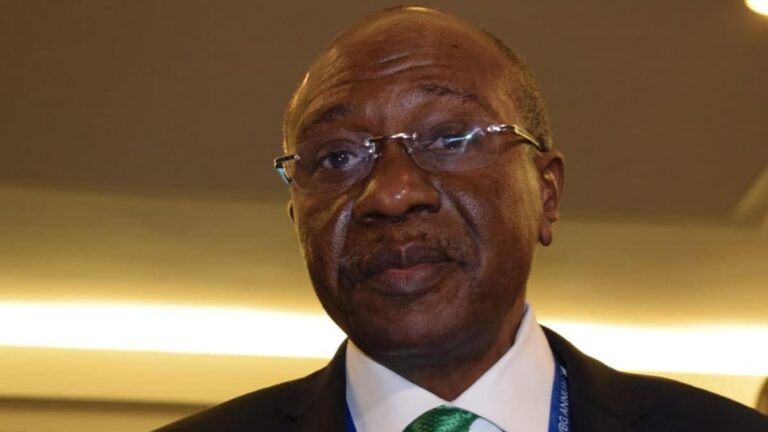
Naira: Official Exchange Rate Falls 92.4% in 5-Year
The Nigerian Central Bank (CBN) official foreign exchange rate depreciated 92.4% in the last five years amidst unmet rising demand for foreign currencies in the country.
In 2016, Nigeria’s official exchange rate was ₦197 to a US$1 in 2016 as against ₦379 today’s rate quoted by the apex bank, indicating that movement of Naira alone has impoverish Nigerians.
Due to FX scarcity of foreign currency amidst rising demand, the Central Bank of Nigeria has initiated various measures to attract inflow and reduce outflow, but situation has remained the same over the years.
Recalled that the CBN banned some items from accessing foreign exchange for importation, restrained repatriation of dividend offshore and announced decision to pay N5 on every dollar inflow via remittances.
Noted by the policy authority that the country is well diversified but foreign receipts from oil still account for significant chunk of foreign receipts.
While oil prices has maintained uptrend after recovery from pandemic condition that saw oil contango in 2020, accretion into external reserves has been limited.
In fact, the Nigerian external reserve shy away from $36 billion amidst disagreement with the International Monetary Fund’s $1.5 billion loan disbursement.
The CBN has refused to tone down disparity in its multi-tiered exchange rate which IMF has cited as condition for loan disbursement for the nation.
This is coming despite wide gap between the multi-tiered exchange rates in the country, and another third leg has developed with foreign-investors backed payment gateway.
For example, in a research carried out by MarketForces Africa, foreign receipts from Flutterwave was converted to Naira at N457 per dollar.
This happened when compare with N475 per dollar at the parallel market the same day.
Adding to the pressure, the Nigerian headline inflation rate printed 17.33% in February reaching four year high following 18 months consecutive rise.
At the same time, Unemployment rate to an all-time high of 33.1% in addition to official exchange rate depreciation of 92.4% in five year raised further pressure on economic condition.
Foreign investment inflow into the country has nosedived strongly due to capital control, weak sentiment, heighten security risk and low interest rate environment that limit investors upside.
Compare with the past trend, foreign investors have maintained distant from the local market as return from government instruments trend below inflation rate.
Naira Remains Stable across Market Segments
This week, Naira has remained stable across the foreign exchange market following IMF upgrade to global economic growth forecast to 6% from 5.5%.
The CBN intervened through its periodic supply of US Dollars in the FX market, offering a total of $100.00 million via the secondary market intervention sales (SMIS) wholesale window.
Meanwhile, oil prices declined 2.8% to close at $63.02 per barrel from the previous week. On the domestic front, external reserves inched higher by 0.5% to $35 billion
In the FX market this week, the naira remained flat in the parallel market and CBN spot to settle at ₦485.00/$1.00 and ₦379/$1.00 w/w respectively.
Nigeria’s Recovery Path Remains Blurry despite Improved Projection – Afrinvest
In the Importers’ and Exporters’ (I&E) window, naira appreciated by 30kobo to ₦409.00/$1.00 this week. Meanwhile, activity level in Investors and Exporters window dipped by 2.5% to ₦181.9 million from ₦186.6 million in the previous week.
Naira: Official Exchange Rate Falls 92.4% in 5-Year